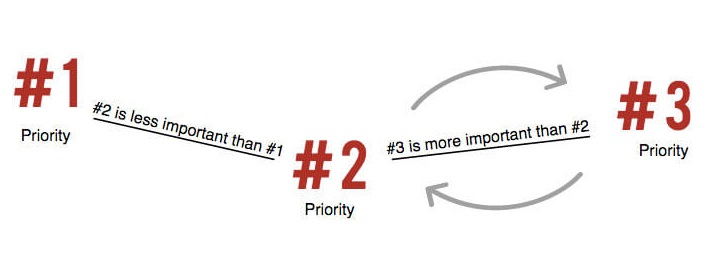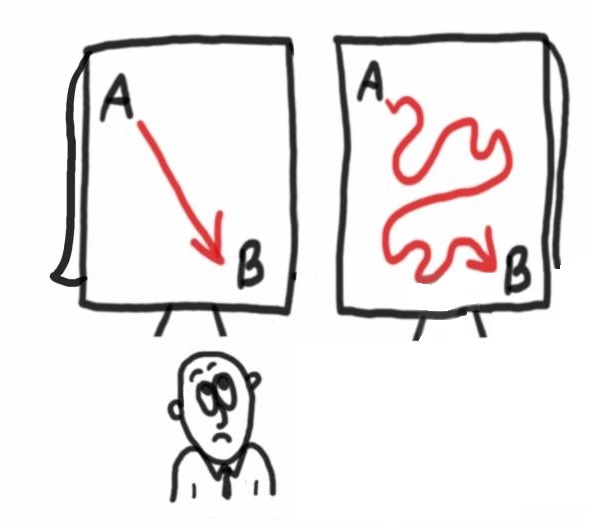
Organized people are not born; they’re built. The people who emerge as ‘organized’ use a variety of tools and methods to accomplish their goals and priorities in life. Their systems become habits.
They Seek Out Tools
From kitchen timers to smartphone technology, organized people find tools that can help them make the most of their day, week, and year. They use mobile phone apps with pop-up reminders, for example. They also use timers to help visualize the passage of time. And they break down tasks into smaller chunks and take short non-work-related breaks in between, which increases their overall productivity.

They Set Priorities
Following a to-do list is like their primary source of organization. Instead of having an overwhelming number of commitments and little idea where to start, organized people have a clear sense of what is important. They know what their goals are, what needs to be done when, and what can be put off. They start the day with a clear plan of their ‘most important things,’ and they review their plan throughout the day and adjust as necessary.

They Have Less Stuff
The golden rule of organization is to have as little as possible to organize. They figure out what the core of their professional and personal missions are and eliminate all else. They will still have stuff to organize, but they have made the job doable. They know how to filter relevant information.
They Choose Simple Solutions
When organizing systems are complex, they often go unused. Organized people use simple tools that make an easy job of putting things away. For example, baskets hold receipts that need to be filed, bills that need to be paid, and books that are waiting to be read. A hook by the door makes it convenient to hang up a coat. And bowls and trays near an entryway will keep keys and wallets in one place.

They Practice Maintenance
Organization requires continual upkeep. Organized people will take a few moments each day to put things back in their proper places. They might archive an email, for example, or put away papers. The tiny amount of time it takes to do this is vastly less than the time it takes to look for something that was not put away properly.
They Regularly Purge
Situations change and formerly useful things become unnecessary. Instead of letting clutter sneak up on them, organized people periodically purge. They clear out their files when the drawer starts to get full, for example, and they toss the notes for the project that was cancelled.
They Project Themselves into The Future
Using a two-person mind-set–present self and future self–can help us stay organized. That motivates us to do those favors for our future self. Organized people also think into the future when they add activities to their calendars. They ask: ‘What could I do before, during, or after this appointment to improve it?’. If they need to prepare for it, bring something to it, or follow up after it, they schedule it now and put it on their task list.

They read/address mails/emails daily
Here is the deal: it does not matter at what time of the day we check our inbox. What matters is that we have a dedicated timeslot each day, let us say, half an hour, for reading and answering all our emails. Organised people know that the cluttered-up inbox will not go anywhere unless it is handled appropriately. There should absolutely be no space at all for clutter on our desk.
They have specific routines and rituals set for the start and end of every day
Staying organized is not all about being uptight. We should always spare some time out for things that make us who we are. Organised people are not prisoners of their routine. Read a book, watch a movie, hit the gym. Again, it is not about being a prisoner of our routine when we can always cut some time out for ourselves. Once we are done with our day, then would be a good time to plan for the coming day. Every day needs its own unique to-do list.
They leave room for last minute changes
Suppose, we are doing just fine with our daily routine and are almost half-way through, when it out of nowhere, a friend calls up for an urgent meeting. Did we leave enough room for this sudden readjustment in our to-do list? Organised people know that staying organized is mainly all about preparing yourself to face turmoil, whenever it shows up. Do not be afraid of tackling mishaps head on, deal with the elephant in the room first.
They never leave anything undone
This is the holy grail of staying organized. They do not leave any task half done. Leaving unfinished business is the hallmark of a disorganized person.
They are not perfectionists
Not everything can be just the way we want it. Sometimes, “good enough” really is enough to get by. So know where the most feasible option would suffice, and forget about making things perfect.
Being organized is not just something we adapt to. Slowly as we dwell in our organized lifestyle, we tend to start taking it more as a mindset rather than a way of living. For instance, we begin living our life in an organized manner, with each and everything in our routine well thought out. And then comes a time where our systems and our rituals are actually morphed into our routine, and our mind adapts to them as habits. If we actually happen to get to this stage, we have officially become an organized person.
Content Curated By: Dr Shoury Kuttappa

